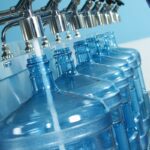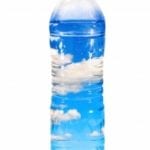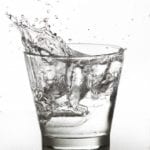Rather than focus this article specifically on drinking water and preventing dehydration, it will also address heat stroke, heat exhaustion and heat rash – even sunburn. Anything that raises your body temperature and prevents the body lowering it can become a major problem and should be treated as such.
Bottled Water Delivery Can Help You Stay Hydrated While Exercising
Who is at risk?
Not surprisingly, athletes are especially susceptible to heat-related illness such as dehydration, heat stroke and heat exhaustion while exercising in warm weather. Fortunately though, most serious heat illnesses can be prevented by following these basic guidelines and heeding the warning signs and symptoms. The larger problems occur when these warning signs are ignored, and this could result into a life-threatening “heat emergency.”
What are the most common heat-related illnesses?
- Dehydration
- Sunburn
- Heat rash
- Heat exhaustion
- Heat cramps
- Heat stroke
- Hyponatremia – Water Intoxication
What can be done to prevent heat related illness?
Staying out of the sun on the hottest days may seem like a strategy, but it is really just the beginning. Athletes and coaches need to know the warning signs and understand the severity and potential outcomes of developing such conditions. Most forms of heat illness can be avoided by following basic prevention guidelines.
Normally, our body uses perspiration to regulate the body temperature, but a number of factors can inhibit the “sweat response.” One of these is intense exercise in high humidity or extreme heat. Others include obesity, age, fever, medications, dehydration, alcohol and illness. When athletes develop a heat illness, it doesn’t always happen right away. It can develop after several hours of exertion and excessive sweating, starting out with dehydration and leading to electrolyte imbalances.
To prevent heat-related illness, follow these precautions:
Drink the Right Amount of the Right Fluids
Drinking enough water and keeping a constant supply of liquid is a wise idea, but not everyone requires the same amount of fluid. Finding the right amount depends upon a variety of factors, such as the length and intensity of the workout and other individual differences. Only drink good quality water. Have water delivered to your Colorado Springs home or install a reverse osmosis filter to get the best quality water you can.
Wear Appropriate Clothing
When exercising in high temperatures, look for lightweight, light-colored and loose-fitting clothing. Wear light, loose-wicking clothing that allows sweat to evaporate, or better yet, invest in some clothes made with Drymax®, CoolMax® or Smartwool®. These fibers have tiny channels that wick the moisture from your skin to the outer layer of the clothing where it can evaporate more easily. Also, remember to wear a hat and sunscreen when outside in the hot sun.
Replace Lost Electrolytes
Sweat is more than just water; it leeches salt and minerals out of the body which will need to be replaced. Maintaining sodium and electrolyte levels is important when you are sweating profusely and exercising for longer than 90 minutes. The easiest way to replace these is with salty foods or sports drinks.
Use Sunscreen and Avoid Sunburn
When packing your water bottle for an outdoor run, don’t forget the sunscreen. Not only is it uncomfortable, sunburn decreases your ability to cool yourself and causes fluid loss. Always use sunblock with SPF 15 or higher and wear a hat that provides shade while allowing for ventilation.
Acclimate to the Heat
If you are traveling to a hotter climate this summer, you might want to give your body time to get used to it. Ideally, you will develop a greater tolerance for exercising in high temperatures if you become accustomed to it slowly, preferably over one or two weeks. Even if you are traveling and won’t have that much time, it is best to allow several days to acclimate before starting an intense exercise routine. Try to limit your outdoor activities to the cooler times of day, such as sunrise or sunset.
Use Common Sense
Aside from drinking water and wearing the right clothing, there are a few other “common sense” ideas to prevent heat exhaustion. These include avoiding hot foods, alcohol and heavy foods before exercising. Anything that increases your core temperature should be avoided in extreme heat. Also, if you start to develop headaches, fatigue or irritability, or your performance starts decreasing, stop exercising immediately and cool off.




